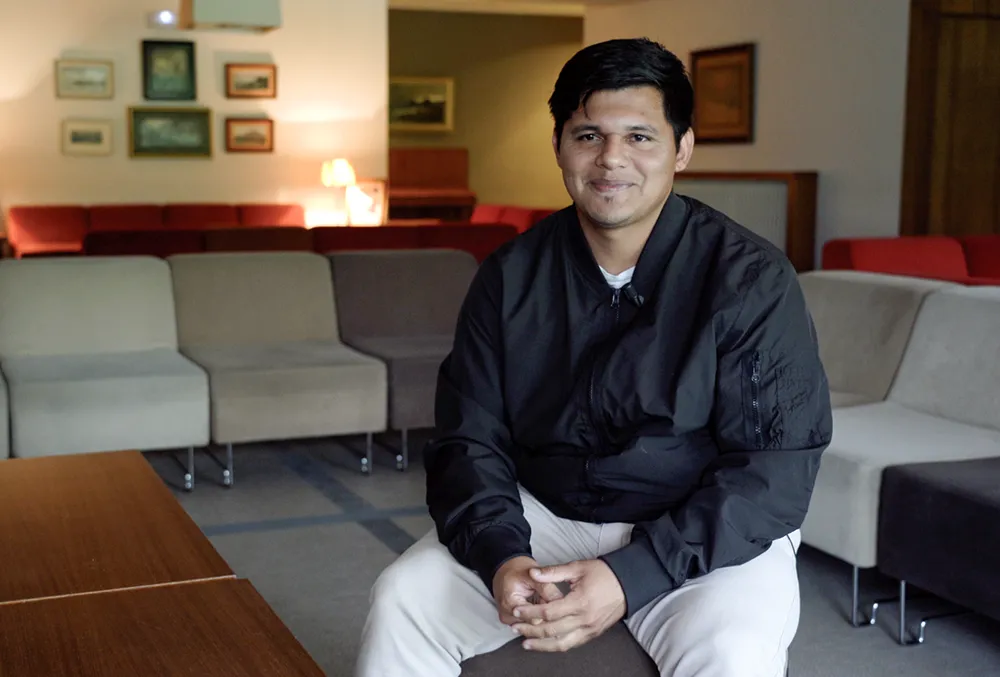
Juan Sebastian Miranda (1997) is an Argentinean seminarian from the Diocese of San Roque. He explains with emotion that his vocation is a "vocation to the priesthood".undeserved gift".The story that God wrote through simple people who, without knowing it, were leading him to Him.
Studying the third year of the Bachelor of Theology at the Ecclesiastical Faculties of the University of Navarra and is his second year residing at the international seminary. Bidasoawhere he continues on this path that the Lord has traced for him.
Juan is the oldest of six siblings. He knows what it means to share and give. He grew up in a family Catholic, although for many years they were not practicing Catholics.
"For some time now, by the grace of God alone, I have seen how my family has started attending Sunday Mass again," he says with enthusiasm.
Juan was studying for a degree in Physical Education. "Between the frenetic pace of the race, he also felt the restlessness of the call to the priesthood."
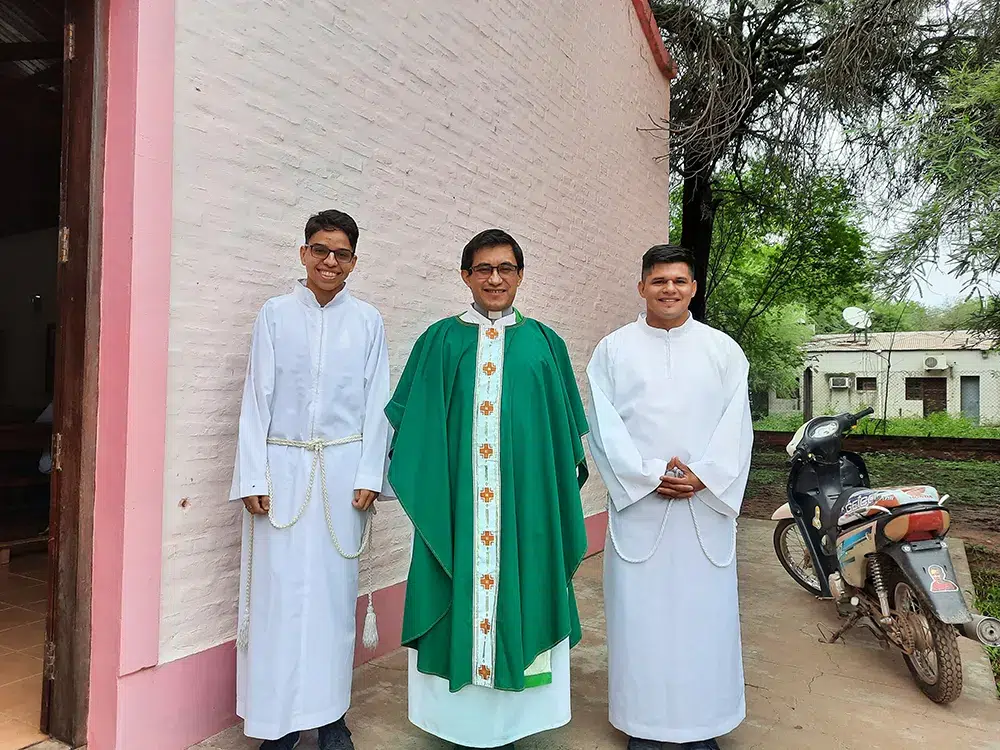
This seminarian recalls the specific moment that marked a before and after in his vocation. "It was the last day of novena to the Immaculate Conceptionpatroness of my parish. During those days, a preacher would give us a short reflection before Mass, and ask us to bring the Bible.
That afternoon I arrived discouraged, without any desire, and I only went because I was a youth group leader. I sat in the last pew, apart, with the Bible to one side, listening to the preaching in the background without paying too much attention to it," he tells us.
Suddenly an inner voice was telling him: "Open Lk. 5,10". Juan ignored it but repeated himself again: "Open Lk. 5,10". Again he let it pass. The third time he heard that voice urging him on, he could not help but open the New Testament and read the passage.
Luke 5,10 is a biblical verse where Jesus addresses Simon Peter after a miraculous catch of fish and tells him: "Do not be afraid; from now on you will be a fisher of men".
Juan Sebastian relates that at that time he lived with doubts about whether the Lord was calling him to be a priest. But that day, with those words, everything became clear. That verse illuminated everything. He felt that God was confirming what He wanted from him.. "Since then, my life has been an attempt, imperfect but sincere, to answer that call and fulfill His will." will".
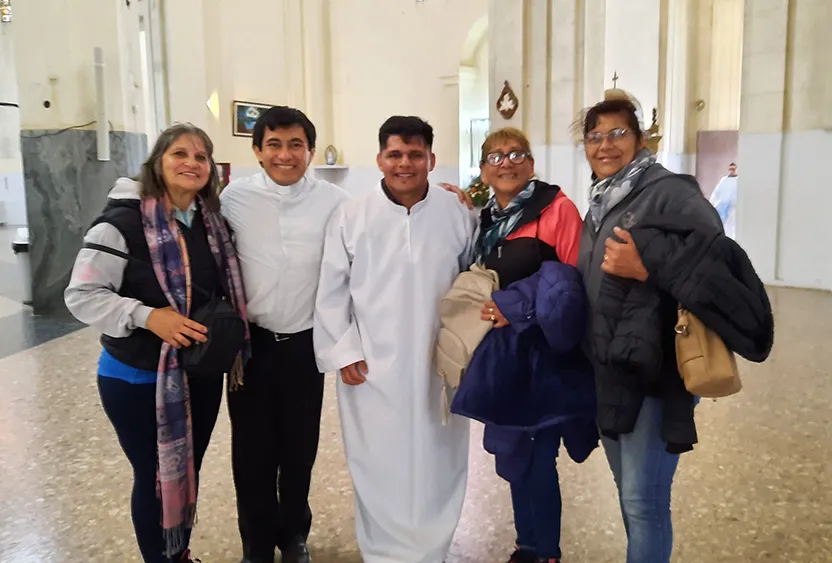
On this path to the priesthood, he is very clear about what today's world needs, and they are priests that identify deeply with Christ.
"Prayer and intimacy with God cannot be neglected. Only a heart rooted in such a relationship can respond to the needs of society and to guide her along the path of hope".stresses Juan Sebastián.
And so, this seminarian continues to walk, with his limits (like everyone), but with the certainty that God is writing his story. "Every day I ask him to help me to be faithful, so that in my weakness his strength may be manifested," he adds.
Juan is training in Spain before returning to his diocese in San Roque, a very large circumscription with 24 parishes, each with large rural areas and numerous communities.
"My parish serves about 25,000 inhabitants, plus ten rural communities, and has only one priest.". In total, the diocese has more than 500,000 faithful, served by 41 diocesan, missionary and religious priests alone.
For this reason, the formation of the priest is essential, especially in the face of another challenge that is taking hold in the region: the growth of Protestantism.
"One of our great challenges is to reach places where they cannot celebrate daily Holy Mass because of the shortage of priests. In addition, it is also very important to accompany young people, who, in a society marked by the individualismThey seek to fill their existential emptiness with social networks and the constant need to be seen, without finding a deep meaning to life", expresses concern.
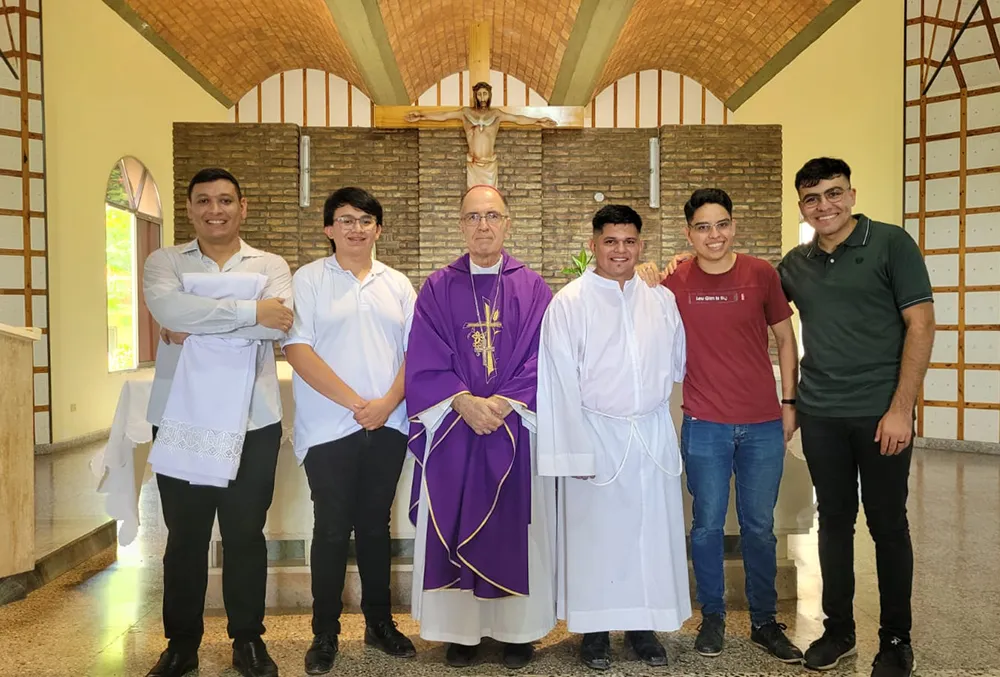
For Juan Sebastian, the prevailing individualism in society is a problem that needs a paradigm shift. And in this change it is vital that Christians show the world that they are not called to live in isolation, but to go out to meet the other.
"In a society that distances itself from God and accommodates the truth to its own convenience -sometimes out of ignorance-, close and communitarian witness is more necessary than ever," he says.
During his years in Spain, he has been struck by the fact that, in general, people are quite religious, especially the elderly. He has observed this appreciation for traditions, such as the processions of Easter.
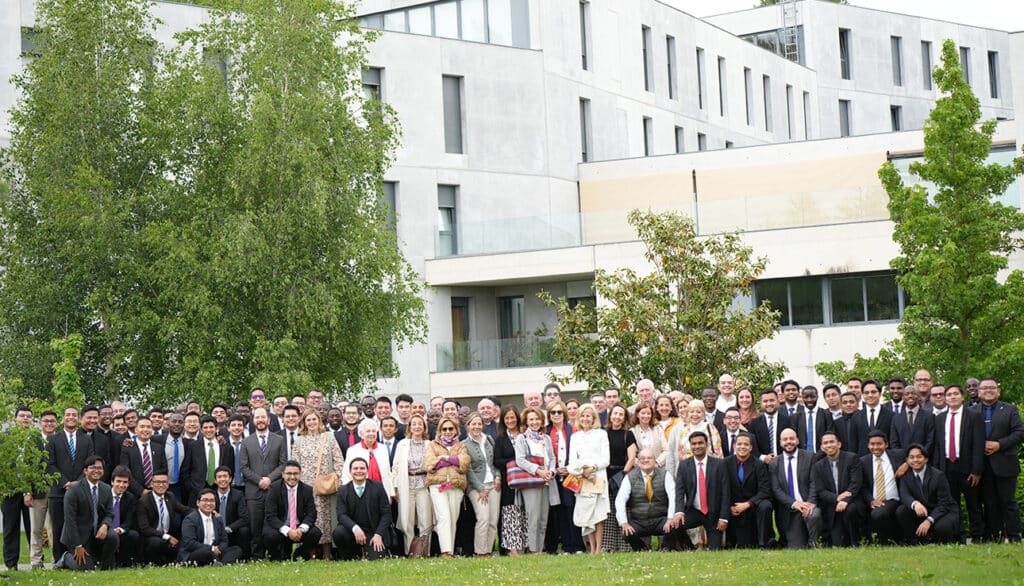
Juan is in Bidasoaan international seminar located in Pamplona. "It is a place where a worldwide family gathers, where one gets to know other brothers who share the same faith, the same madness of wanting to serve the Lord from the call to the priesthood".
"I think it would be beautiful if that the same passion for Holy Week should also be lived in the Eucharist, in Confession and in the sacraments. In my country we don't have that same cultural expression, so for me it has been something new and enriching," concludes Juan Sebastián, hoping to return to Argentina with strength and enthusiasm.
Marta Santínjournalist specializing in religion.
Everyone has a unique vocation to holiness. However, they are distinguished:
Marriage: a sacred vocation in which a man and a woman commit themselves to live together in an indissoluble bond, open to life and to the education of children, seeking their mutual sanctification and that of their family.
Priesthood: call men to serve the Church as ordained ministers (bishops, priests and deacons). Priests are dedicated to the proclamation of the Gospel, the administration of the sacraments and the pastoral care of the community.
Consecrated life: a call to men and women to consecrate their lives to God through the vows of poverty, chastity and obedience, living in community. This includes nuns, monks, friars, brothers and sisters of various religious orders and congregations.
Celibate life: The vocation of persons who, without joining a religious order or marrying, dedicate themselves to serving God and the Church through their professional work, their service to others and their life of prayer, seeking holiness in their particular state of life.
According to a catechesis of Pope Francis "the sacrament of Holy Orders comprises three degrees: the episcopate, the presbyterate and the diaconate.
The one who receives this sacrament exercises the mission entrusted by Jesus to his Apostles and prolongs in time his presence and action as the one true Teacher and Shepherd. What does this mean concretely in the lives of those who are ordained? Those who are ordained are placed at the head of the community as servants, as Jesus did and taught.
The sacrament also helps them to love the Church passionately, dedicating their whole being and their love to the community, which they are not to consider as their own property, but as the Lord's.
Finally, they should strive to revive the gift received in the sacrament, granted through prayer and the laying on of hands. When the ordained ministry is not nourished by prayer, listening to the Word, daily celebration of the Eucharist and frequent reception of the sacrament of Penance, one ends up losing the authentic sense of one's own service and the joy that comes from a profound communion with the Lord".
The time of formation of a seminarian to become a priest is a long and rigorous process that, in general, lasts between 6 and 8 years, depending on the seminary and the diocese. This period is not only focused on academic study, but on an integral formation that encompasses several dimensions: human, spiritual, intellectual and pastoral.
It is best for a newly ordained priest to respond: "I think it is best that the priest be a normal person. I am referring to character and mentality. Besides, the mission we have asks us to be people with a supernatural outlook, with a strong life of relationship with God. And at the same time, very human, close, to relate to all kinds of people who need a more intense contact with God. I would like to be a pious priest, joyful, optimistic, generous, available to all people and all needs. It seems to me that these are aspects that people especially value in Pope Francis".